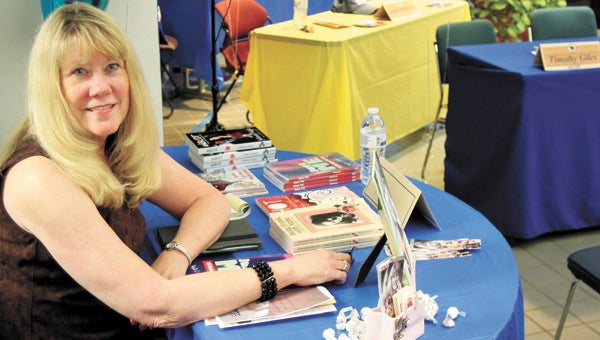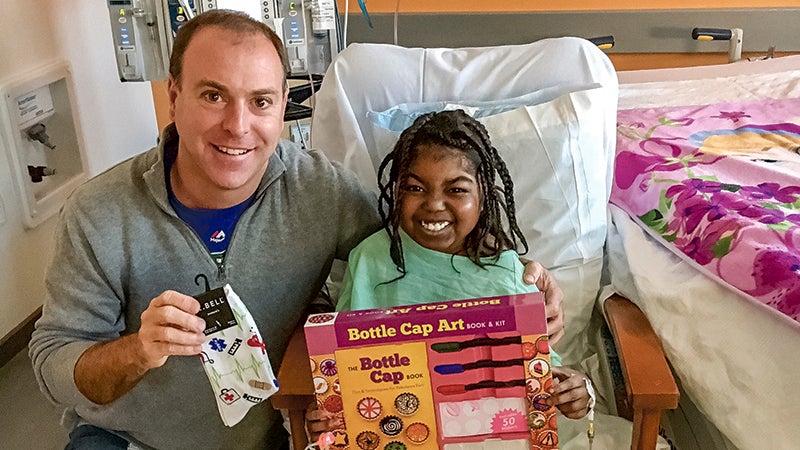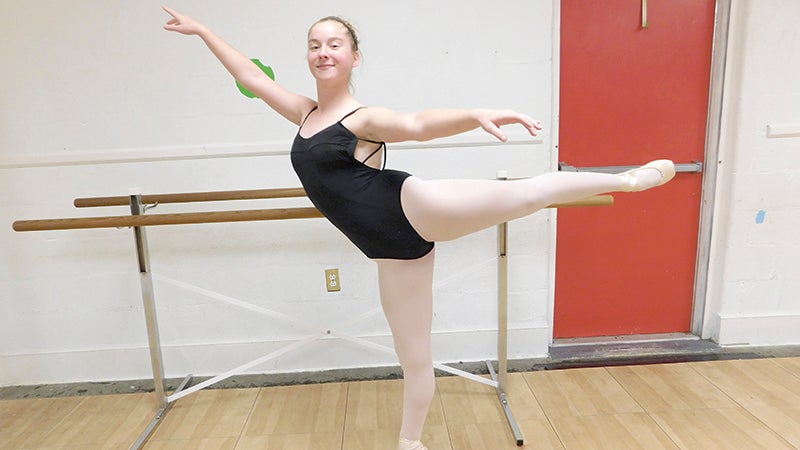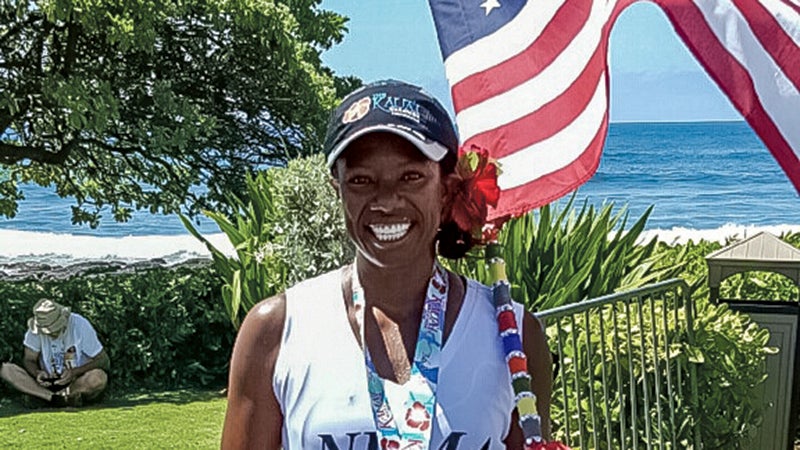The beat goes on
Published 9:01 pm Tuesday, April 29, 2014

Phyllis Johnson, a Suffolk native, signs books during the Paul D. Camp Community College Literary Club’s fifth annual literary festival Friday at the Hobbs Suffolk campus.
While thumbs and fingers came together for a few “snap-snaps,” clapping was the preferred applause during a literary festival Friday featuring powerful performance poetry.
Hosted by Paul D. Camp Community College’s Literary Club at the college’s Hobbs Suffolk campus, the fifth annual festival involved recitals, panel readings, award presentations, and children’s storytelling, puppet shows and arts and crafts.
Many of the open-mic participants were seasoned performers, including Nathan Richardson, also the event moderator, but the audience also included individuals, like Chelsea Gephart, who were there to put one metaphorical toe into the water of the literary festival.
Gephart, now attending nursing school, said she has been penning verse since the eighth grade, having started to deal with the pain of being bullied.
“I had a lot of people trying to drag me down,” she said. “I used nursing school to pull out of that.
“I’m probably not moving in a direction necessarily of poetry, but more toward the anti-bullying movement — just getting involved with that, and seeing what I can do.”
Gephart’s “Silent Killer” took second place in the literary club’s annual poetry competition. Forrest Womack’s “A Hero in Disguise” won, and Christopher Walden came in third with “The Black Panthers Part.”
As the open-mic session warmed up, Richardson explained the provenance of the “snap-snap.”
During the early days of performance poetry, in the basement apartments of New York brownstones, Beat Generation poets, such as the storied Allen Ginsberg, would ask audiences to snap instead of clap so as not to disturb the neighbors, Richardson said.
Brynda Parker, after rising from her seat to recite “There Ain’t No Pews in Hell,” said the open-mic experience brings out the best in poets.
“You reach higher dimensions,” she said. “It takes you more quickly to your potential. This is essential to poetic success.”
The festival — and it was her first year attending — helps poets and writers with networking and inspires collaboration, Parker added.
As the storm bucketing down rain outside grew into some kind of a metaphor — poets converging beneath a shelter of camaraderie and mutual support to share their renderings of emotions that had swamped them — Sherman Goodman remarked that he and wife Carol, a student at the college, had simply brought their children for the experience.
“So far, so good,” Sherman Goodman said. “It has been very nice.”
The literary club’s officers started planning the festival in December, said Monte’ Jones, its public relations officer.





